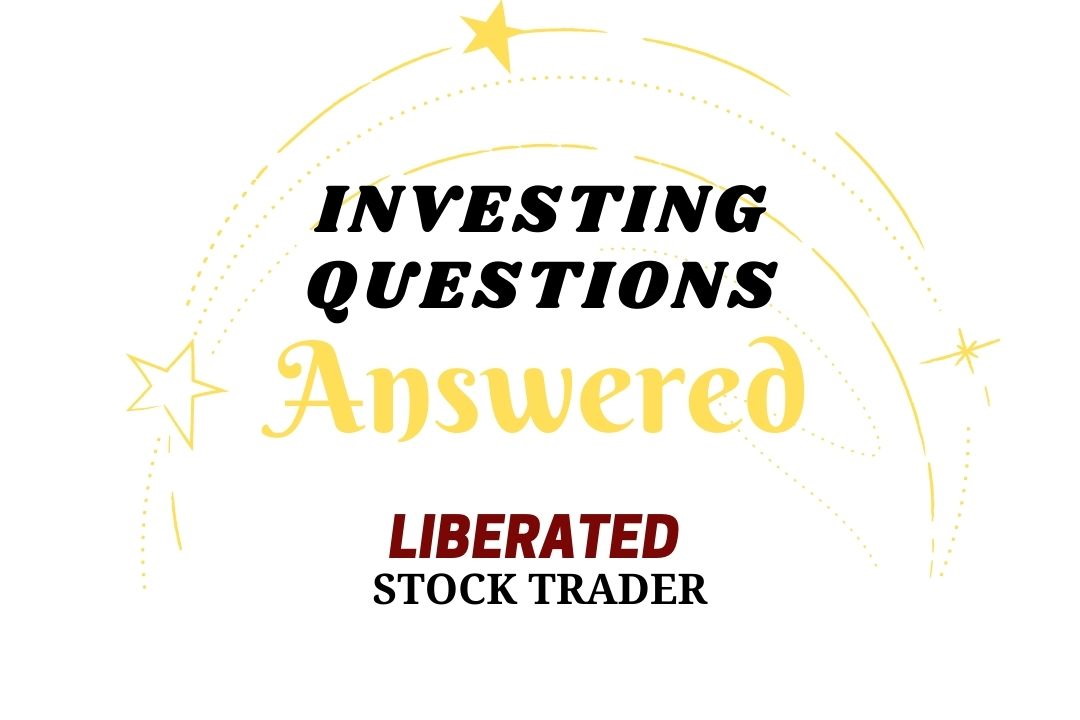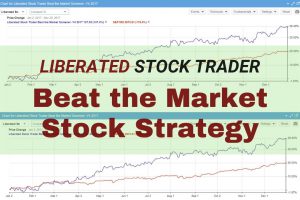Most stocks are considered liquid assets because they are traded on open exchanges.
But not all stocks are liquid. Penny stocks trading on over-the-counter (OTC) exchanges can have few buyers and sellers, making them illiquid, high-risk investments.
Learn about liquidity and how to avoid high-risk, illiquid stocks.
What is Liquidity?
Liquidity is an asset’s ability to quickly convert into cash without significantly affecting its price. High liquidity occurs when many buyers and sellers are in the market, allowing assets to be easily bought or sold at a fair price. Low liquidity occurs when few buyers and sellers are in the market, meaning it can take significantly more time and effort to find someone willing to buy or sell the asset reasonably.

Liquid Stock
Liquid stocks have high liquidity because they are traded on open exchanges with many buyers and sellers participating. This creates an environment where stock prices can quickly adjust to reflect changes in demand or supply, allowing liquid stocks to always be close to their true value.
By contrast, penny stocks traded over-the-counter (OTC) often have very few participants in the market, making them extremely illiquid and difficult to trade at fair prices.
How Do You Know if a Stock is Liquid?
You can determine a stock’s liquidity by looking at its average daily trading volume. The higher the trading volume, the more liquid the stock.
You can also look at the bid/ask spread of a stock. If it is narrow, it shows that many buyers and sellers in the market are willing to buy or sell the stock at any time.
Finally, you can look at the market capitalization of a stock. If it is large, then that indicates that many investors are interested in trading the stock and, therefore, more liquidity in the market.
Liquid stocks are easier to trade and have less price volatility than illiquid ones. This means that they are generally seen as safer investments and tend to be favored by institutional investors.
Determining a Stock’s Liquidity Using a Chart
There are two ways to spot a stock’s liquidity on a chart: look for price gaps and the volume bars. Many large price gaps on candlestick charts indicate volatility in pricing, meaning low liquidity. Additionally, observing the volume indicator can show how many stocks are traded.
Low volume on stock charts is a lack of liquidity.
Observing the volume indicator to spot an illiquid stock can show you how many stocks are traded on a given day or minute. Low volume means that fewer stocks are being traded, which indicates low liquidity. As a result, it can be difficult to price and trade the stock accurately.
The chart above shows NAVYA, an OTC stock with serious liquidity problems. You can see on some days, there are no stock trades. Also, even just a few thousand stocks traded can cause huge spikes or drops in stock prices.
Gaps in stock charts indicate a lack of liquidity.
A quick way to see if a stock is liquid or illiquid is to use a daily candlestick chart. The stock is illiquid if there are many gaps between closing and opening bars.
This chart example shows huge price volatility, even when trading volume is low, indicating a lack of liquidity. Observe how many price gaps there are from day to day.
You want to be a successful stock investor but don’t know where to start.
Learning stock market investing on your own can be overwhelming. There’s so much information out there, and it’s hard to know what’s true and what’s not.
Liberated Stock Trader Pro Investing Course
Our pro investing classes are the perfect way to learn stock investing. You will learn everything you need to know about financial analysis, charts, stock screening, and portfolio building so you can start building wealth today.
★ 16 Hours of Video Lessons + eBook ★
★ Complete Financial Analysis Lessons ★
★ 6 Proven Investing Strategies ★
★ Professional Grade Stock Chart Analysis Classes ★
Illiquid Securities
Illiquid securities cannot be bought or sold easily, often due to a lack of buyers or sellers. These assets can include penny stocks traded over-the-counter (OTC) with very few market participants and do not reflect their true value. Additionally, any asset not traded on an open exchange, such as cryptocurrencies and gold, can qualify as illiquid assets, as there may be restrictions on how fast one can convert them into cash.
A security or investment is illiquid when there are not enough buyers and sellers to transact the trade quickly at the current market price. Typical illiquid equities are penny stocks traded on over-the-counter markets.
A good example of illiquid security is gold. If you take gold to the pawnshop or exchange it to convert it to cash, the dealer will typically pay far less than the market rate.
Cryptocurrencies are also illiquid assets because you have a limited number of exchanges to convert many cryptocurrencies to fiat currency, such as US dollars. The exchanges, crypto wallets, and apps take a commission that erodes liquidity.
Are Stocks Liquid Assets?
Yes, stocks are a good example of liquid assets. One can consider all stocks in the major indexes liquid, e.g., Russel 3000 and S&P 500. However, some stocks traded on the OTC market might not have enough trading volume to be considered liquid assets.
Today, you can sell stocks fast through online brokerages and stock apps. Many investors use stocks as liquid assets. People use stocks as liquid assets because they often deliver a higher return than savings accounts, bonds, certificates of deposit (CDs), bonds, and other popular cash investments.
Can Blue-Chip Stocks Become Illiquid?
High-quality blue-chip stocks, such as Apple and AMD, are liquid assets. A stock is only a liquid asset if there is a high and constant demand for it in the market. However, stocks can suddenly become illiquid if trading is halted on an exchange due to a market crisis.
Are Stock ETFs Liquid?
Exchange-traded funds (ETFs) are generally considered liquid assets, as there is usually a constant demand for them. ETFs expose investors to the performance of whole markets without investing in individual stocks, making them attractive to many investors and more liquid than individual stocks.
Can ETFs Become Illiquid?
Additionally, Stock ETFs, normally considered liquid, can become illiquid if trading is halted, as in the case of the March 22, 2022, trading halt on the VanEck Russia ETF due to the Russia-Ukraine conflict.
Are Crypto Assets Liquid?
Cryptocurrencies are generally considered illiquid assets, as the large swings in their prices make them difficult to trade. The volatile nature of cryptocurrencies means that liquidity can dry up quickly, leaving investors unable to exit positions or buy and sell crypto assets easily. However, this is slowly changing as more institutional investors enter the cryptocurrency market and the infrastructure for trading digital assets improves.
The 20 Most Liquid Stocks in the USA
The most liquid stocks in the USA are AMD, Apple, Ford, NIO, AT&T, and NVIDIA, each with over 50 million transactions per day over the previous three months.
Table: The Most Liquid Stocks
| Ticker | Company | Liquidity* | Price |
| AMD | Advanced Micro Devices | 105,471,928 | $88.73 |
| AAPL | Apple | 89,763,888 | $154.51 |
| F | Ford Motor | 70,733,656 | $13.35 |
| NIO | NIO | 69,989,808 | $13.44 |
| T | AT&T | 57,534,128 | $19.36 |
| NVDA | NVIDIA | 52,905,320 | $175.95 |
| BAC | Bank of America | 52,263,768 | $35.76 |
| TWTR | 49,555,648 | $47.26 | |
| PLTR | Palantir Technologies | 48,961,728 | $7.29 |
| ITUB | Itau Unibanco Holding | 48,143,792 | $4.51 |
| AAL | American Airlines Group | 42,088,080 | $16.57 |
| BBD | Bank Bradesco | 38,947,712 | $3.59 |
| VALE | Vale | 37,173,236 | $14.70 |
| CCL | Carnival | 36,742,676 | $14.19 |
| INTC | Intel | 36,230,000 | $44.01 |
| OXY | Occidental Petroleum | 35,332,044 | $59.41 |
| UBER | Uber Technologies | 35,140,112 | $23.67 |
| FB | Meta Platforms | 34,206,236 | $197.65 |
| BABA | Alibaba Group Holding | 32,461,024 | $84.57 |
| MSFT | Microsoft | 32,392,072 | $269.50 |
*Liquidity is the average daily volume of stocks traded over three months. Data provided by Stock Rover.
How to Beat the Stock Market With Stock Rover

I love Stock Rover so much that I spent 2 years creating a growth stock investing strategy that has outperformed the S&P 500 by 102% over the last eight years. I used Stock Rover's excellent backtesting, screening, and historical database to achieve this.
This Liberated Stock Trader Beat the Market Strategy (LST BTM) is built exclusively for Stock Rover Premium Plus subscribers.
How to Find Liquid Stocks.
You can easily find the most liquid stocks by using stock analysis software. Select an exchange, and sort the stock list by 3-month average trading volume. Those companies at the top of the list are the most liquid.
Is Stock a Liquid Asset?
Stocks are not as liquid as cash because there is no guarantee stock will remain liquid. The market can be volatile, causing a stock to lose value. Investors regard popular stocks, such as Apple (AAPL), Amazon (AMZN), and Alphabet (GOOG), as liquid because there is a high demand for them.
Others regard stocks in cash-rich companies such as Amazon, Goldman Sachs, and Bank of America as liquid stocks. Warren Buffett buys finance and banking stocks, such as Bank of America, US Bancorp, and BNYMellon, because those companies accumulate enormous amounts of cash.
Do Brokers Consider Stocks Liquid?
Yes, brokers and financial institutions consider stocks liquid depending on their trading volume. When a broker looks at a stock chart to make a buy/sell decision, they will look at liquidity indicators such as the number of trades happening each day (volume) and the price volatility in relation to that volume. If there is high volatility without much volume, the stock is likely considered illiquid.
Margin accounts and margin trading prove stocks can be liquid assets. In a margin account, a brokerage, platform, or investment bank uses the cash value of stocks as collateral.
The lender extends a trader a line of credit they call margin. In exchange, the lender can sell the stocks if the borrower does not pay the margin. Margin accounts convert stock liquidity into credit.
Margin accounts show that banks and brokerages consider stocks liquid assets. Stock markets could not function without stock liquidity and margin accounts.
Not all stocks are considered liquid assets. Most brokerages will not sell over-the-counter and penny stocks because those issues are not liquid. Penny stocks are cheap shares that sell for under $1 on the over-the-counter (OTC) markets.
Most penny stocks are not liquid because they trade in unregulated markets where companies do not have to reveal financial information. Margin accounts do not trade penny stocks because there can be no way to ascertain the stocks’ true value.
Are Stocks more Liquid than Bonds?
Generally, stocks are more liquid than bonds. Stocks can be easily bought and sold on the open market, while bonds must be traded through a broker. Bonds tend to have longer maturities, meaning investors may not see a return on their investment for years. This makes them less attractive to traders who want quick returns.
Despite these differences, stocks and bonds are traded on the same market. This means that both types of investments can be bought and sold quickly, creating fluid capital flows. Furthermore, stocks offer more potential returns than bonds due to their higher risk profile.
Bonds rated AAA by the big three rating agencies are believed to have a low risk of default. That means selling those bonds for cash or borrowing against them is easy. AAA corporate and government bonds, such as US treasury bonds, are highly liquid.
Unlike stocks, bonds can be issued to create liquidity; many companies issue bonds to finance operations. Fourth, governments can issue bonds. Some investors consider government bonds safe because a government can always raise taxes or print money to cover bonds.
Although bonds are considered more liquid than stocks, stock liquidity is still an important source of financing investors can tap.
Other Investing Questions Answered:

